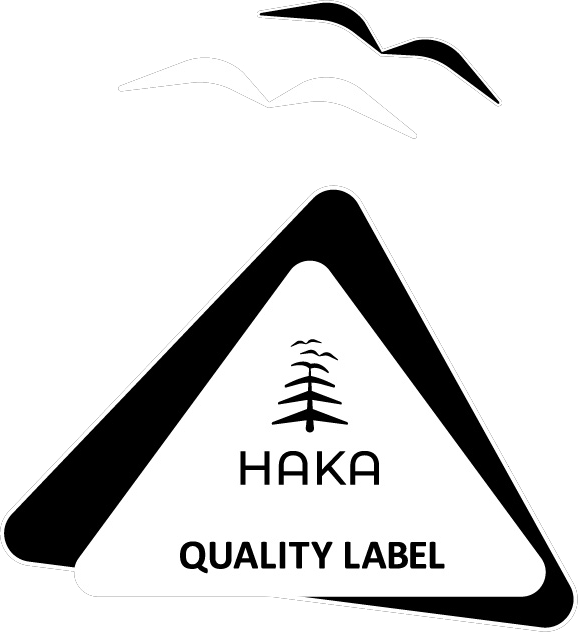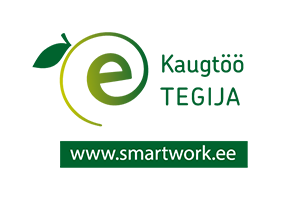

 All news
All news

This international panel of elected representatives, the rector of EUAS, Mr Pedai (Estonia), the assistant professor in Social Computing Lab, Ms She (Japan), the CPO and Co-Founder of R8 Technologies OÜ, Mr Köse (Estonia), and the Head of Centre for Artificial Intelligence and Robotics in TalTech, Ms Maar (Estonia), were pondering over several different questions under the banner of “Embracing the AI Revolution: Finding Your Place in the New World”. The discussion was moderated by Mr Tralla.
The first set of questions regarded the topic of climate neutrality and the role AI has to play there. A question whether we would create a climate neutral world just to hand it over to singularity was directed towards Mr Pedai. He responded, saying that it is rather amazing to think that such topics are in the same time frame and mentioned, with humour, that if any of the ideas in I. Asimov’s books would come true, then Mr Köse and R8 could expand from simple building to whole planets. Ms Maar, however, believes that humans will make wise decisions and we will continue with narrow AI and will not have to hand over the fruits of our hard work. Mr Köse also pointed out that in the coming years we should work on cooperating with AI and hand over some of the sub-processes so that we could reach our goals faster. Ms She adds that in Japan the topic of climate neutrality is also very important and people are usually well aware of the topic.
The next topic steered the panel towards the point of whether AI should be regulated or not. Will the regulations be helpful or would they tamp down the innovation? Ms Maar responded that EU regulations for AI will surely come, and possibly already in the first quarter of the year 2024. She also explained that while the regulations will add trustworthiness to AI and transparency, they will also slow down the innovation, which is somewhat concerning. Mr Pedai adds a few thoughts through the business prism and states that business owners always take some risks and pay for them with their own capital, which is why regulating the field will always be somewhat painful; however, regulating is needed, so that the companies would not overstep some limits. It must be that the truth is somewhere in between. Mr Köse added from his view, that luckily this regulatory act from EU would not affect his company as they do not deal with any GDPR regulated data. Ms She introduced the views from the Japanese side and said that the two main focuses for AI usage and regulatory measures are set towards spreading misinformation and violating copyright laws.
Taking a step forward from regulations, the panel started discussing the possibility of adding a moral compass to AI. Mr Pedai offered that now is the perfect time to ponder about these matters as we are still in control of the AI development process. Mr Köse added that in R8tech they also make sure that their solutions correlate to regulations. When the question was developed into what if AI takes over control and decides to make its own limits in, say energy saving, what will then happen to us both Ms Maar and Mr Köse responded that the goal of AI will not be taking out humans or limiting us, as it would work on the basis of always having human supervision and control. However, when returning to the original idea of adding a moral compass to AI, Ms Maar explained that with LLMs the research is not yet developed far enough. And added that perhaps with explainable AI and knowledge representation methods we could, in the future, teach AI to make decisions based on moral values. Ms She added that since most data for AI is based on the English language then there are already quite a few biases included. She pointed out that before building in that moral compass it should be made certain for whom the AI system is built, as there is no overarching moral compass for the whole world.
Developing on the moral and social topics, the mediator asked the panellists whether AI would become a perfect companion or would people just start isolating themselves from the real world since sometimes communicating with actual people is very tiring. Ms Maar suggested that this is another matter where balance is very important. Especially with the younger generations since they are more used to communicating via different devices and social media. Chatbots have their positive points, but it should be made sure that they will not become the only means of communication for people. Mr Pedai added that since large companies are working towards launching the digital twins that it might happen at some point that some people will prefer conversing with the twins rather than with actual humans. Ms Köse supplied that for him it is more important to tackle the issues that are affecting our daily lives right now, and as such it would be more rewarding to create digital twins for the buildings than humans. Regarding social issues in Japan, Ms She provided insights to whether AI would increase the feeling of loneliness or help avoid it. She explained that it is a complex matter and sometimes can provide unwanted results when not used properly, however, there are surely positive outcomes for elderly people who live alone and can talk to chatbots.
Next part of the discussion moved towards the possible role(s) of AI in diagnosing physical illness. Ms Maar replied that it has been proved that AI helps doctors to better diagnose melanoma and other skin issues. Also, AI can provide faster results from x-ray photos and allow doctors to focus on code-red cases. Mr Köse added that if we could trust the information gathered from our smart rings and watches, perhaps the data could be used to prognose some health issues. Mr Pedai states that he believes that the field that uses AI to monitor public health will surely grow. He suggested that the technology able to do that is already out there and just waits to be implemented. Ms She also confirms that AI technology is used to monitor health and/or help doctors with diagnoses. The dilemma, however, is in the fact that it is difficult, for both patients and doctors, to accept what the AI suggests as it does not provide explanations no matter how grave the disease. Mr Köse added a comment and stated that this need for explanation also exists in his field of work.
To close the panel discussion with one last topic, the moderator went back to the beginning and asked how the introduction of AI into various industries might redefine work and human contribution. Ms Maar replied that she is optimistic and believes that AI will lessen the amount of machine-like work that humans have to do, and that will enable humans to focus more on children, be better leaders and deal with human-like tasks. Mr Pedai also believes in the possibilities of cooperating with AI and brought an example that students who have a personal tutor, in the form of AI, are actually achieving better results in their university assignments. Mr Köse argues that with the help of AI everyone can focus on what they do best; AI can keep on doing small adjustments and humans can focus on doing physical tasks. Ms She also joined the other panellists in their positive opinions and stated that AI would help to remove the repetitive and redundant tasks that usually hinder humans from focusing on more creative challenges. She concluded by saying that AI will probably take the role of augmenting our future, but humans would still be the ones to make decisions and take actions.
You can find full discussion on our Youtube channel. More information at conference homepage


 Student
Student

